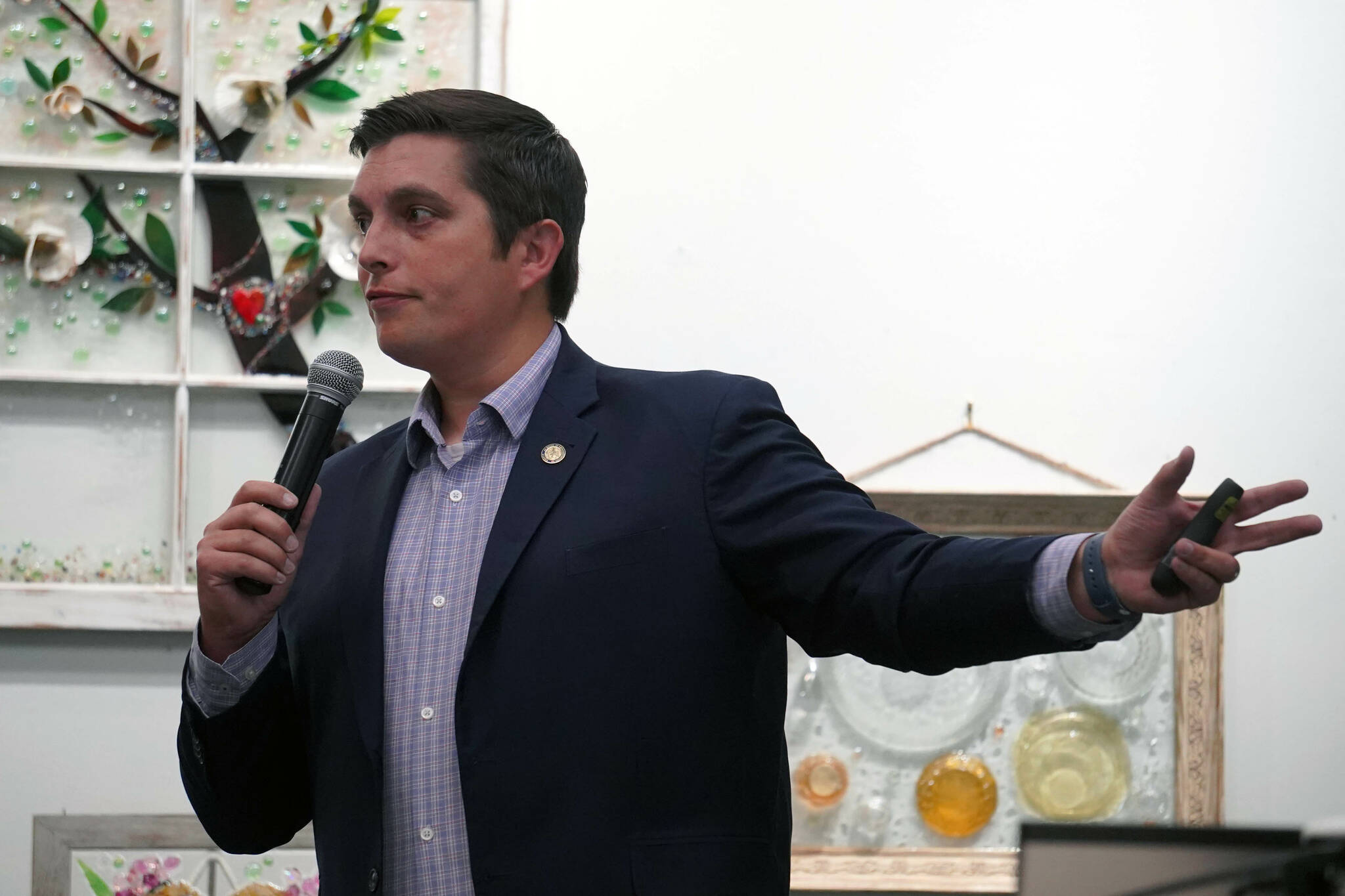Rep. Justin Ruffridge, R-Soldotna, delivered an update on the Alaska legislative session at a joint luncheon of Kenai and Soldotna chambers of commerce on Wednesday, July 31.
He discussed the successes of his freshman session in the Alaska Legislature, including bills passed in health care and education, while also outlining issues surrounding energy that he said will likely become large discussions in the next session.
Education and energy, Ruffridge said, were the two main focuses of the Legislature last year.
On energy, Ruffridge described a bill passed that would align transmission lines along the Alaska’s railbelt from the Kenai Peninsula to Fairbanks and combat wheeling rates — seeking uniform rates across the railbelt. It was signed into law by Alaska Gov. Dunleavy earlier that same day.
That bill, he said, was not one his office supported.
There needs to be further motion on energy, he said, to prevent energy shortfalls like the looming Cook Inlet shortage of natural gas. Railbelt energy will continue to be “a huge topic,” he said.
“The overarching theme is ‘be prepared,’” he said. “For the idea of having to pay more for energy. Unless we come up with some solutions as a state, as a legislative body.”
Education saw more forward motion, Ruffridge said. He supported the omnibus Senate Bill 140 that would have increased school funding, increased funding for correspondence students and added protections for charter schools. That bill was vetoed by the governor.
Ruffridge said his office was a driver on the legislation that would have restored correspondence school programs after a Superior Court judge in April called Alaska correspondence schooling unconstitutional. The Alaska Supreme Court in June reversed the ruling but remanded the case for further proceedings.
A bill that passed and was signed into law this summer expanding the Alaska Performance Scholarship was sponsored by Ruffridge, he said, though it ran as a House Education Committee bill.
That bill, he said, will be significant for Alaska’s workforce development because it will encourage Alaska students to stay in the state. Students who go to school or undergo vocational training in Alaska overwhelmingly stay in Alaska, he said. Similarly, Alaska students who travel Outside for their schooling are unlikely to return.
Speaking on the budget, Ruffridge lamented the veto of all but one of the capital projects he had added to the state budget. Only $300,000 for a Soldotna project to construct a shelter for winter sand and salt remained.
He also said that the Alaska Permanent Fund dividend is “the issue that continually drives our budget discussions.” He worries, in the face of low oil revenue and inflated costs, that there is a risk of the dividend “actually going away entirely in potentially the next three years.”
Also spotlighted during Ruffridge’s update were his personal successes. His efforts in education had already been covered, but he described several bills in his own industry of health care that were all successfully passed.
Among those was a bill that removed veterinarians from the state’s controlled substance database. Another updated a variety of pharmacy regulations and soon will allow for the dispensation of epinephrine without a prescription. There was also a bill that cleaned up some regulatory language for optometrists to delegate routine tasks and a bill that added flexibility to medical review organizations.
Rep. Ruffridge is running for reelection against challenger Ron Gillham of Kenai for House District 7. The Alaska primary election will be held Aug. 20, followed by the state and federal lections on Nov. 5.
Reach reporter Jake Dye at jacob.dye@peninsulaclarion.com.

